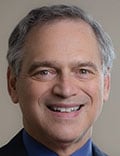ACC Calls for More Career Flexibility in Cardiology
A new statement from the American College of Cardiology (ACC) is calling for a greater degree of career flexibility in the specialty to promote cardiologists’ personal and professional well-being and preserve excellence in patient care.
The statement recommends that cardiologists, from trainees to cardiologists contemplating retirement, be granted more leeway in their careers to allow them to take time for common life events, such as child rearing, taking care of aged parents, or reducing their workload in case of poor health or physical disabilities, without jeopardizing their careers.
The “2022 ACC Health Policy Statement on Career Flexibility in Cardiology: A Report of the American College of Cardiology Solution Set Oversight Committee” is published online October 13 in the Journal of the American College of Cardiology.
‘Hard Driving Profession’
The well-being of the cardiovascular workforce is critical to the achievement of the mission of the ACC, which is to transform cardiovascular care and improve heart health, the Health Policy writing committee states. Career flexibility is an important component of ensuring that well-being, they say.

Mary Norine Walsh, MD
“The ACC has critically looked at the factors that contribute to the lack of diversity and inclusion in cardiovascular practice, and one of the issues is the lack of flexibility in our profession,” writing committee chair, Mary Norine Walsh, MD, medical director of the heart failure and cardiac transplantation programs, Ascension St. Vincent Heart Center, Indianapolis, Indiana, told theheart.org | Medscape Cardiology.
The notion of work-life balance has become increasingly important but cardiology as a profession has traditionally not been open to the idea of its value, Walsh said.
“We have a very hard driving profession. It takes many years to train to do the work we do. The need for on-call services is very significant, and we go along because we have always done it this way, but if you don’t re-examine the way that you are structuring your work, you’ll never change it,” she said.
“For example, the ‘full time, full call, come to work after you’ve been up all night’ work ethic, which is no longer allowed for trainees, is still in effect once you get into university practice or clinical practice. We have interventional cardiologists up all night doing STEMI care for patients and then having a full clinic the next day,” Walsh said. “The changes that came about for trainees have not trickled up to the faculty or clinical practice level. It’s really a patient safety issue.”
She emphasized that the new policy statement is not focused solely on women. “The need for time away or flexible time around family planning, childbirth, and parental leave is increasingly important to our younger colleagues, both men and women.”
Walsh also pointed out that the writing committee was carefully composed to include representation from all stakeholders.
“We have representation from very young cardiologists, one of whom was in training at the time we began our work. We have two systems CEOs who are cardiologists, we have a chair of medicine, we have two very senior cardiologists, and someone who works in industry,” she said.
The ACC also believes that cardiologists with physically demanding roles should have pathways to transition into other opportunities in patient care, research, or education.
“Right now, there are many cardiology practices who have traditional policies, where you are either all in, or you are all out. They do not allow for what we term a ‘step down’ policy, where you perhaps stop going into the cath lab, but you still do clinic and see patients,” Walsh noted.
“One of the goals of this policy statement is to allow for such practices to look at their compensation and structure, and to realize that their most senior cardiologists may be willing to stay on for several more years and be contributing members to the practice, but they may no longer wish to stay in the cath lab or be in the night call pool,” she said.
Transparency around compensation is also very important because cardiologists contemplating a reduced work schedule need to know how this will affect the amount of money they will be earning, she added.
“Transparency about policies around compensation are crucial because if an individual cardiologist wishes to pursue a flexible scheduling at any time in their career, it’s clear that they won’t have the same compensation as someone who is a full time employee. All of this has to be very transparent and clear on both sides, so that the person deciding towards some flexibility understands what the implications are from a financial and compensation standpoint,” Walsh said.
As an example, a senior career cardiologist who no longer wants to take night calls should know what this may cost financially.
“The practice should set a valuation of night calls, so that the individual who makes the choice to step out of the call pool understands what the impact on their compensation will be. That type of transparency is necessary for all to ensure that individuals who seek flexibility will not be blindsided by the resulting decrease in financial compensation,” she said.
A Growing Need
“In its new health policy statement, the American College of Cardiology addresses the growing need for career flexibility as an important component of ensuring the well-being of the cardiovascular care workforce,” Harlan Krumholz, MD, SM, Harold H. Hines, Jr. Professor of Medicine and professor in the Institute for Social and Policy Studies at Yale University, New Haven, Connecticut, commented to theheart.org | Medscape Cardiology.
“The writing committee reviews opportunities for offering flexibility at all career levels to combat burnout and increase retention in the field, as well as proposes system, policy, and practice solutions to allow both men and women to emphasize and embrace work-life balance,” Krumholz said.

Harlan J. Krumholz, MD, SM
“The document provides pathways for cardiologists looking to pursue other interests or career transitions while maintaining excellence in clinical care,” he added. “Chief among these recommendations are flexible/part-time hours, leave and re-entry policies, changes in job descriptions to support overarching cultural change, and equitable compensation and opportunities. The document is intended to be used as a guide for innovation in the cardiology workforce.”
‘Thoughtful and Long Overdue’
“This policy statement is thoughtful and long overdue,” Steven E. Nissen, MD, Lewis and Patricia Dickey Chair in Cardiovascular Medicine and professor of medicine at the Cleveland Clinic Lerner College of Medicine, Cleveland, Ohio, told theheart.org | Medscape Cardiology.

Steven E. Nissen, MD
“Career flexibility will allow cardiologists to fulfill family responsibilities while continuing to advance their careers. Successfully contributing to patient care and research does not require physicians to isolate themselves from all their other responsibilities,” Nissen added.
“I am pleased that the ACC has articulated the value of a balanced approach to career and family.”
Walsh, Krumholz, and Nissen report no relevant financial relationships.
J Am Coll Cardiol. Published online October 13, 2022. Abstract
Follow Medscape on Facebook, Twitter, Instagram, and YouTube
Source: Read Full Article


